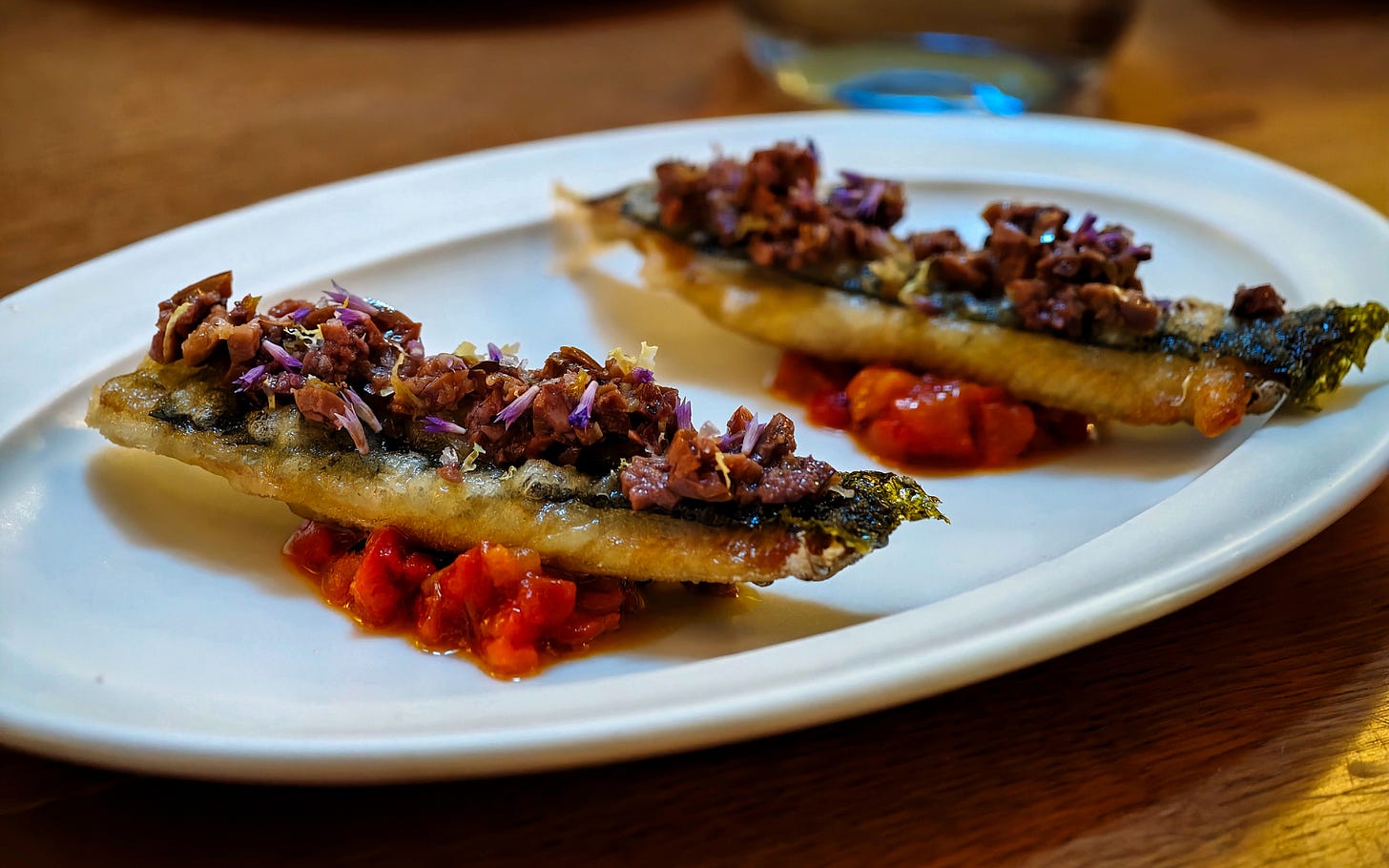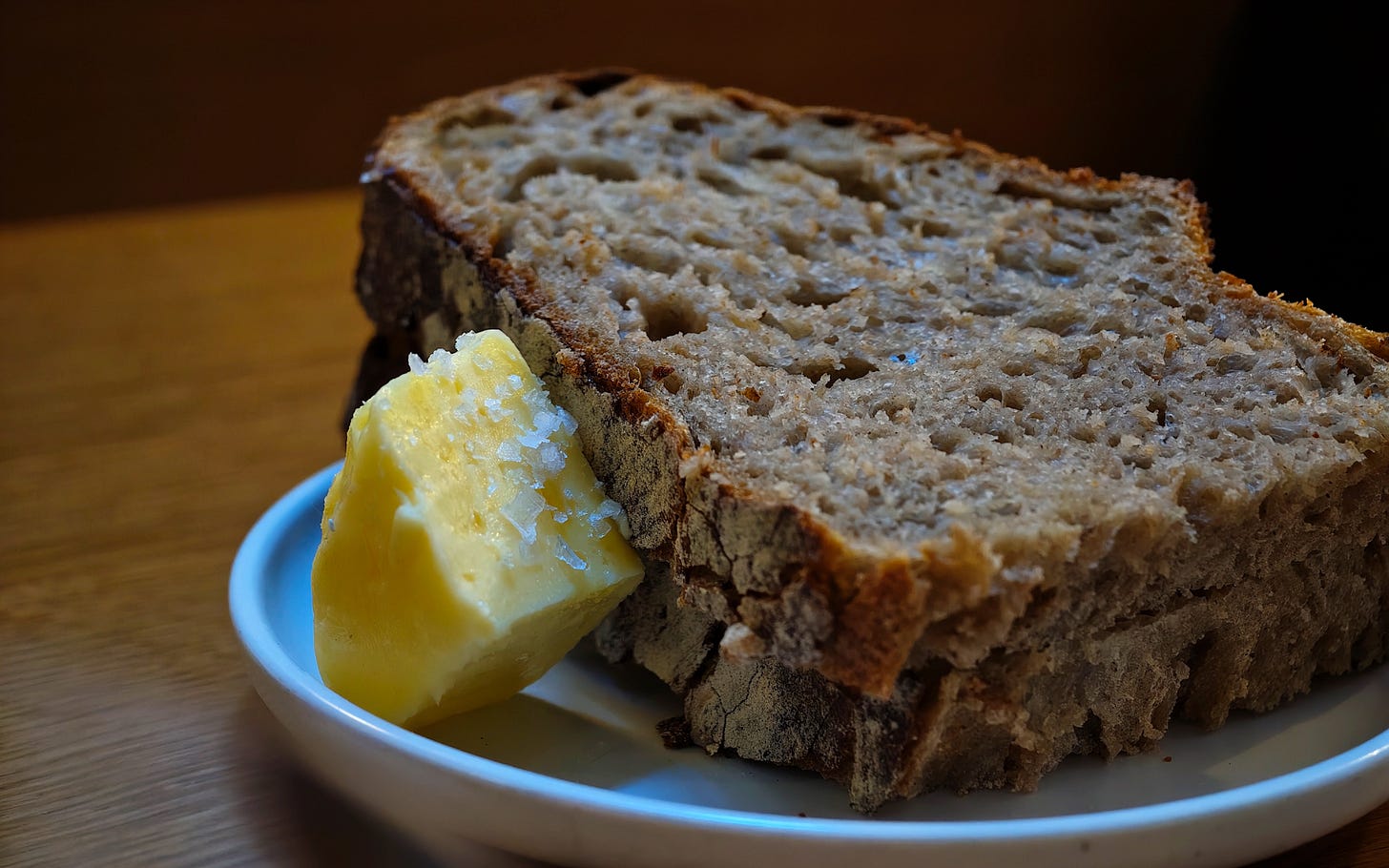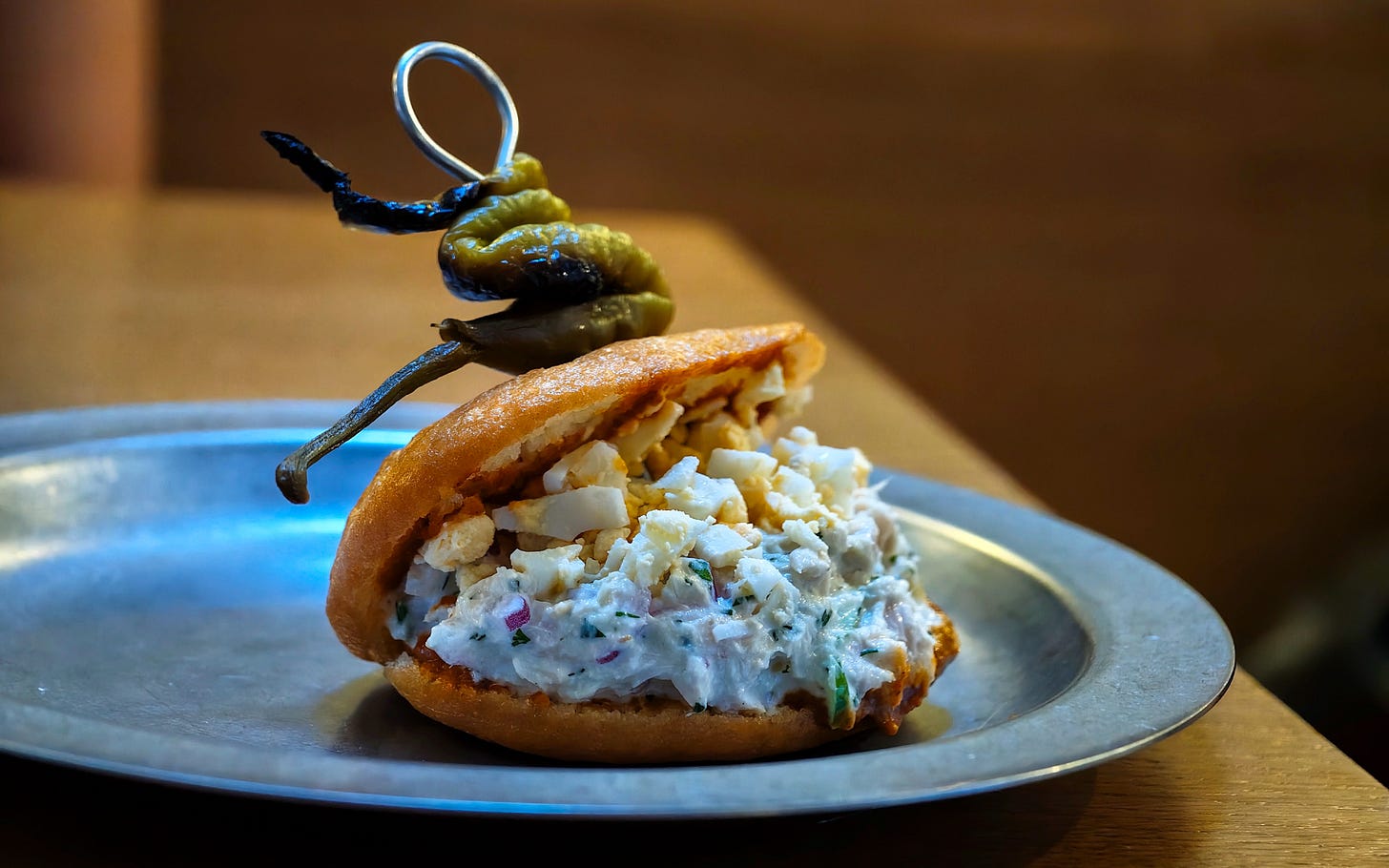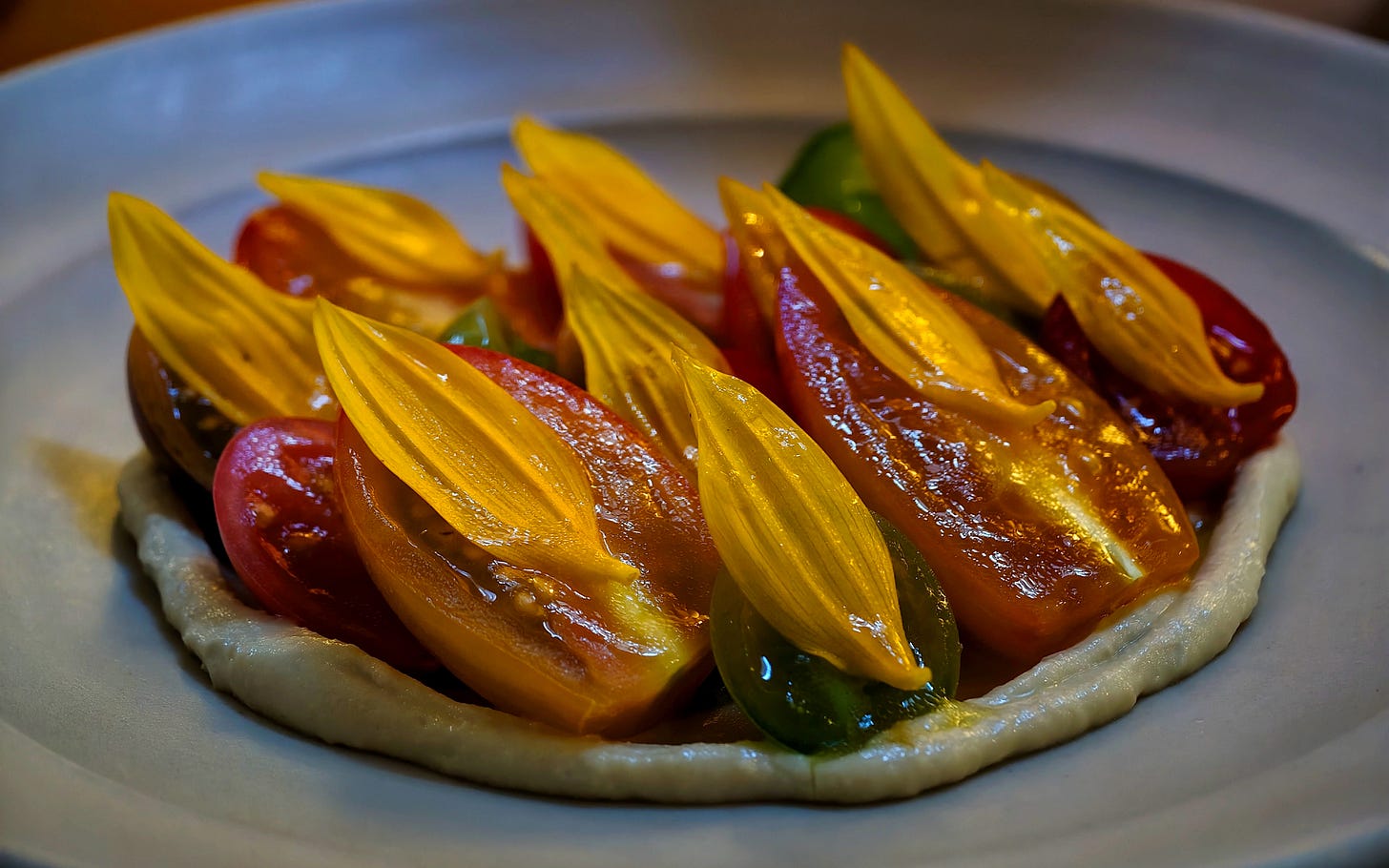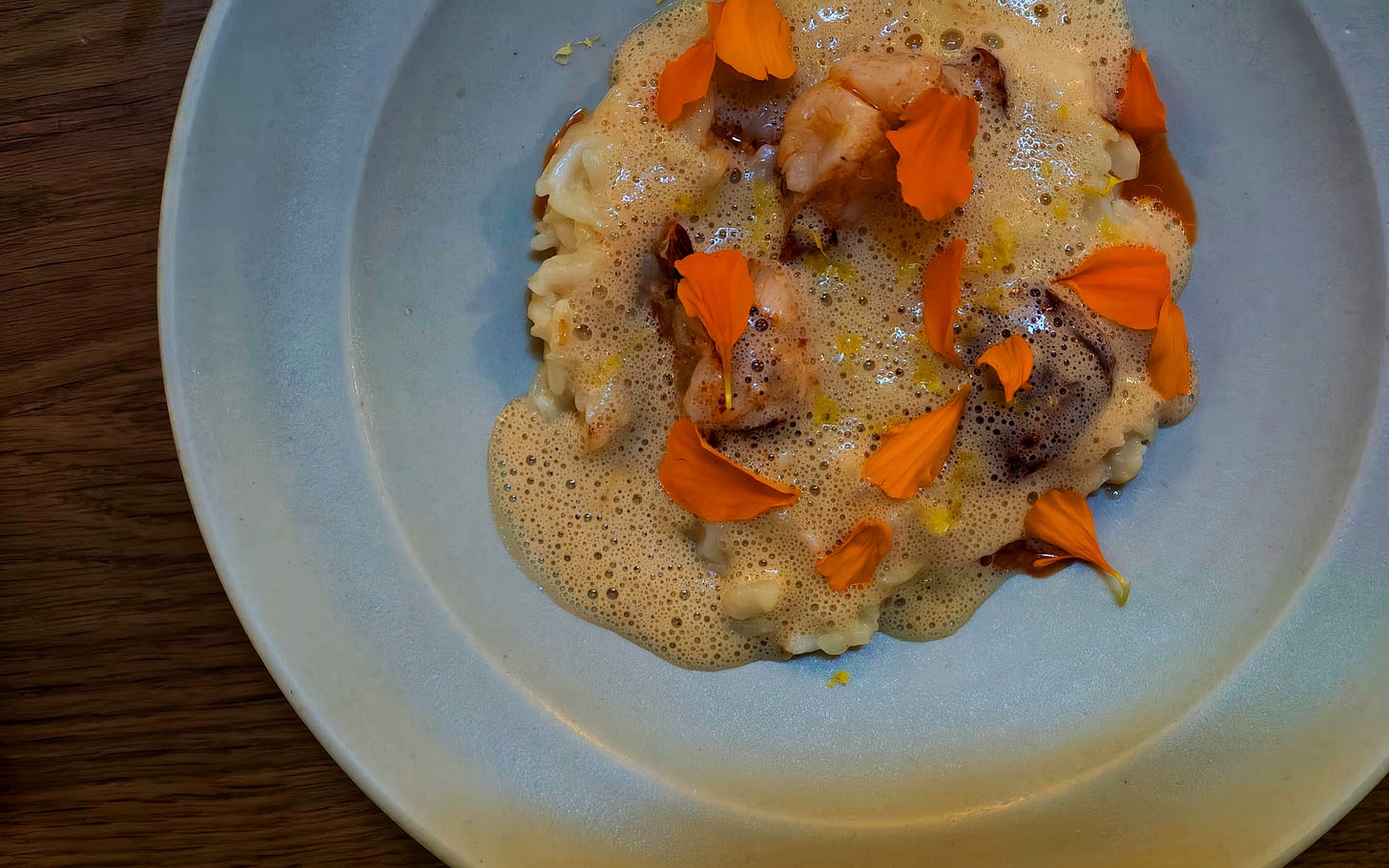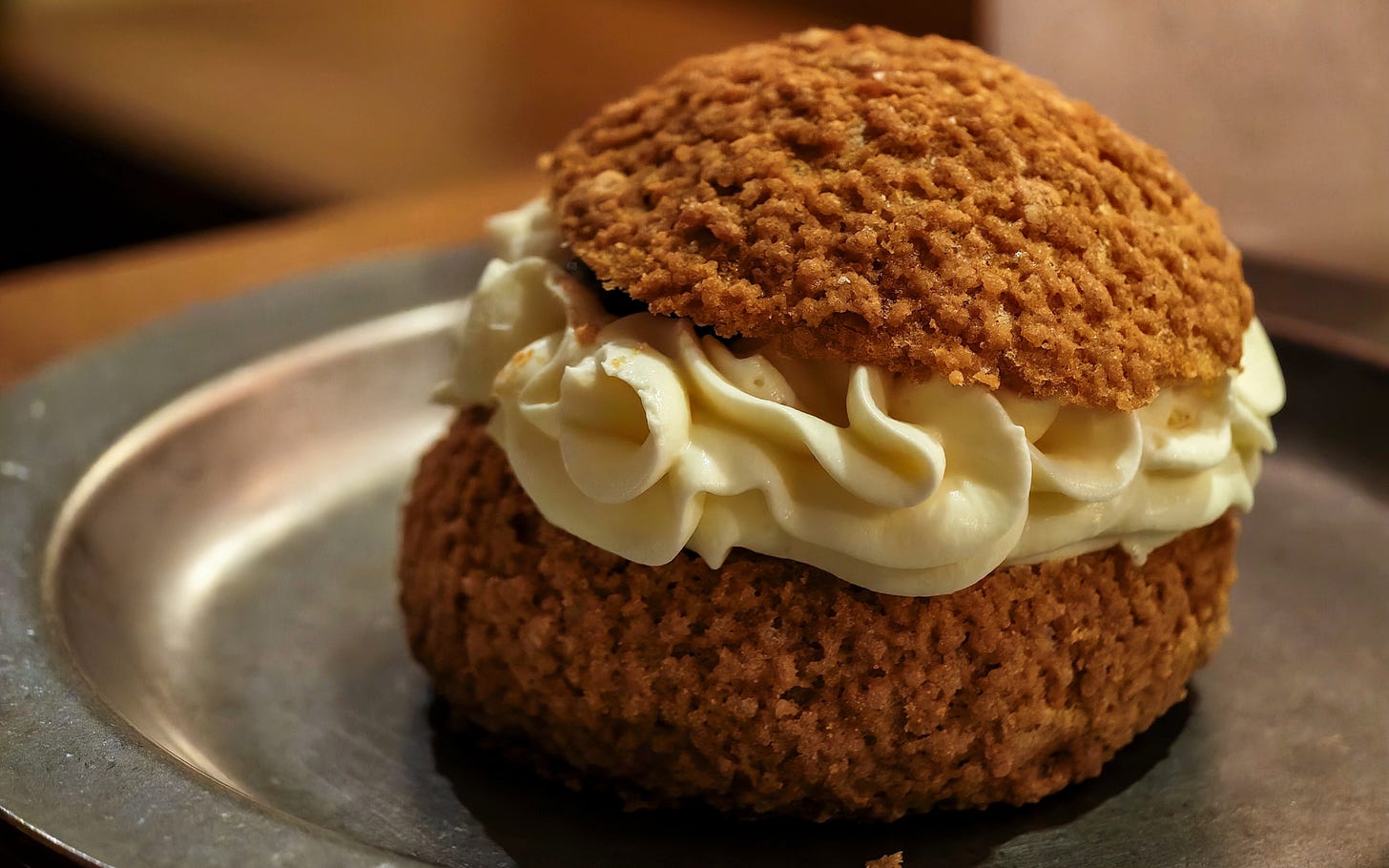Planque, E8
Good for more than plonk
I owe my interest in Planque mostly to Feroz Gajia, owner of Bake Street, who both visits regularly and tends to rave about it just as often on his Instagram Stories. I’ve long trusted Gajia’s taste in food, but trust him on Planque even more so, for the simple reason that he doesn’t drink. And at Planque that’s bold.
That’s because this is a restaurant, but it’s also a members’ club for wine obsessives, somewhere you can pay almost a grand a year to cellar your wine and get a bunch of premium perks. Unsurprisingly that emphasis on vino extends to the restaurant, where the wine list is nine pages long and runs roughly from £50 to £500.
Unlike Gajia, I certainly am a drinker, but a connoisseur I am not. I wasn’t about to go to Planque with the wine front of mind, and am not really that interested in a place where the food plays second fiddle. As Gajia can no doubt attest, that isn’t a problem at Planque.
Things get off to a strong start. After The Rake’s bouncy bloomer and cloud of whipped butter, this is my second recent meal where I’ve been wowed by a simple serving of bread and butter, though the similarities end there. These rustic slices of sourdough achieve a minor miracle: the deep colour and complex flavour of wholemeal flours without giving up the waxy texture and open crumb that refined flour provides. It would bread to savour in isolation if it wasn’t served along a wedge of rich butter, scattered with salt, warm and soft and suited to smearing.
At £4 for two slices, it’s the only thing on the menu that feels generously portioned for the price, but that comes with the territory. Planque skirts the edges of fine dining in both its plating and pricing, with a precision and delicacy in its approach that justifies breaking £100 per head.
Scallop and sea lettuce tartelettes are each the size of a coin, firm pastry gently shattering beneath a sliver of scallop, subtle but still never overpowered by the salt-soaked sea lettuce. Slender fried sardines hold firm beneath a floral olive tapenade, salty and savoury twice over, balanced by a sweet base below. Not everything feels so fussy: a tuna fricasée sandwich has no flourishes beyond a pickled pepper speared through the top, and simply turns out to be a really good, if rather small, sandwich. In any other context, paying £9 for a tuna sandwich I could finish in three bites might rankle just a little, but here it feels playful and self-aware. It’s also simply delicious, among the best things we eat all night, which doesn’t hurt.
We do drink that night, and by this point I was swirling the dregs of my opening negroni. While the bottle list is daunting if you don’t know what you’re about, wines by the glass feel friendlier, starting from £10, and with pairing advice if you need it. A French Muscat blend from Les Foulards Rouges is crisp, fresh, and fruity; a Syrah by La Grange Saint André somehow feels full-bodied but almost entirely absent of tannins, and dangerously drinkable for it.
With many dishes sparse and simple, they live and die by the strength of their produce. Tomatoes bedecked with sunflower petals appear picture-perfect, but the British tomato is a fickle thing, and these don’t quite deliver — soft, watery, and mild. The best tomatoes are a joy unto themselves, these feel a little drab. By contrast, lamb sweetbreads and piattone beans are elevated by contrasting effects of the grill, the soft organ meat giving way effortlessly to the firm snap of beans. A potent fenugreek sauce unites the two, threatening to overwhelm the sweetbreads but giving them just enough space to make their own flavour known; we mop up the dregs hungrily with the last scraps of our bread.
It doesn’t get much more simple than Planque’s lobster rice, one of the few staples on a menu that otherwise changes often. Soft rice and barely cooked lobster are served only a little ostentatiously under a foaming sauce and flower petals. It’s an earned flourish though, every bite here precious and tender and rich. Vivian is briefly distracted by how it resembles a risotto but is not one; I couldn’t care less when it tastes like this.
Save space for dessert, which tends towards the light but intricate. We opt for an airy choux bun stuffed with inky summer blackberries and whipped cream. Below them lies a small scoop of jasmine tea ice cream, which proves the defining element, a slight savoury note that reins the rest in and keeps things from getting too sweet. It takes the combined force of our wills not to order a second.
A final word for Planque’s dining room, one of the prettiest I’ve eaten in for some time. Dominated by a long, communal dining table (though individual options exist too), it’s got all the midcentury minimalist trappings of the rest of east London, but is expansive and open, beautiful in the summer light that stretches late into the night. If I could afford to be a snob about wine, I suspect this might be where I’d do it; as is, I’ll settle for coming back for the food.



